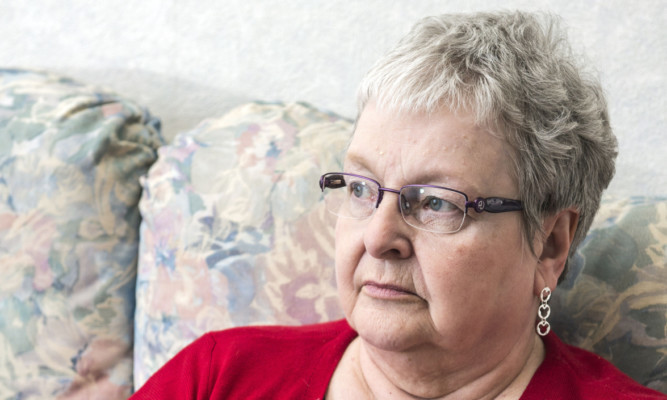Thousands of Scots diagnosed with cancer are unable to eat, wash or leave the house on their own, according to a charity.
Around 100,000 people living with the disease in Scotland struggle to cope with basic day-to-day tasks, new research from Macmillan Cancer Support revealed.
The charity said 76% of those who have had a cancer diagnosis in the last 10 years have practical or personal care needs ranging from difficulties getting dressed to problems getting to hospital appointments.
The new Hidden at Home report found more than 60,000 people are either unable to do practical tasks such as prepare and eat food, or do grocery shopping or housework by themselves.
Almost half of patients are either completely unable to get in and out of bed, move around or use transport alone and 42% cannot travel to medical appointments or pick up prescriptions alone or without a lot of help.
Janice Preston, Macmillan’s head in Scotland, said: “It’s heartbreaking to think that there are cancer patients struggling to feed or wash themselves who aren’t getting the support they desperately need.
“Cancer is often seen as a medical problem solved by surgery or drugs, but this research shows the problems it brings can no longer be solved within hospital walls.
“As people live longer with cancer, health and social care services must work much more closely together to make sure they get the care and support they desperately need.”
The charity is calling for every cancer patient in Scotland to receive an assessment of their needs and a care plan that sets out how they will get the support they require.
The assessments are already being carried out in some parts of Scotland.
One woman who thinks patients must be offered more help is former breast cancer patient Helen Thewliss from East Kilbride.
The 65-year-old said: “I had to rely a lot on my friends and family to help me clean the house and I lived on ready meals or frozen meals from my family because I was too tired to cook.
“I was made redundant and had to spend most of the money putting in a walk-in shower because I couldn’t get into the bath. I had problems getting about on my own, I had financial problems and I had emotional problems.
“Someone did give me a number for a breast care nurse but I didn’t call to ask for help because I just felt that it would be ungrateful. My life had been saved and I felt like it was up to me now to just get on with things.
“I think because most people don’t realise how cancer affects people, when they go through it themselves, they wonder what’s wrong with them and why they can’t cope.
“It would be such a good idea if someone sat you down and asked what help you needed and pointed you in the right direction.
“And it would be so helpful if it was seen as normal to have problems after treatment and to know that asking for help is okay.”
A UK-wide survey of 1,037 people living with cancer and their carers were carried out, with 219 interviews conducted in Scotland.
